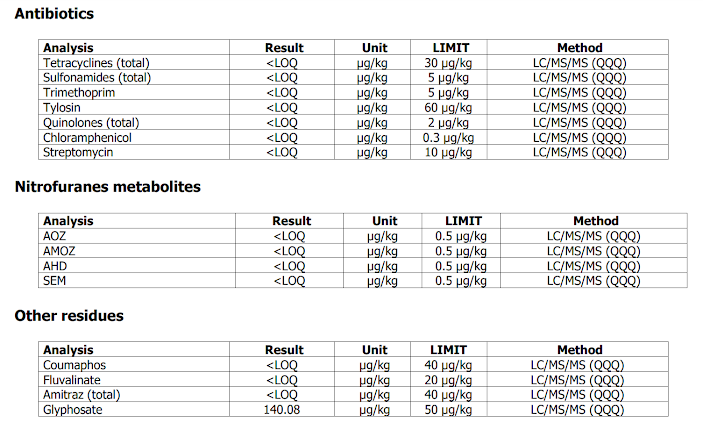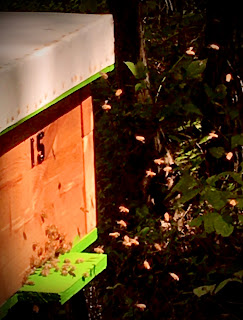New Technologies and the Value of Work in America
Jared Diamond, the Pulitzer-Prize winning author of Guns, Germs, and Steel, has just published what promises to be an especially significant book worthy of wide attention - The World Until Yesterday: What Can We Learn from Traditional Societies? Reviews, not surprisingly, are good. What is most intriguing about this book, though, is its premise that in the rush to modernity modern man has lost and continues to lose significant aspects of civilization that have held communities together for millennia. In short, not everything "modern" is necessarily good and we should look carefully at what traditional societies around the world have to offer us today to help us resolve many of the perplexing social and societal problems that plague every so-called "advanced" or "modern" society.
Related to this is a very sad, but challenging, article that appeared in today's Washington Post newspaper (see http://goo.gl/IEL3J ). As technology, particularly robotics and artificial intelligence, continues to advance, society is faced with a very serious and difficult question - "What will the world be like without work?" I find this question especially vexing because rural America is already facing this question, as are many small towns and entire classes of people. For the economists, it makes perfectly good economic sense to reduce costs of production by having human workers replaced with machine workers (i.e., robots). After all, robots and computers work around the clock, have no need for medical or life insurance, are easily replaced when they burn out or become obsolete, and "retirement" means recycling them or simply throwing them away. Computers and robots never get sick, they are not cranky, they do not get drunk or require counseling, and have no contracts or incur any legal or moral obligations. As for unemployed people, just put them on some kind of welfare paid for by the government and the overall economic picture is just fine.
But what about the value of work itself? What about the dignity and self-respect that come from working? What about the pride and "usefulness to society" that one feels from having a job? What about the respect a man or woman earns from their family, friends, and larger community when they "bring home the bacon" and produce something? Will "jobs" become nothing more than janitors and maids, busboys and other service sector jobs, clerks in box stores, and other relatively mindless occupations that do not permit much creativity, problem-solving, or provide the worker with other intellectual challenges that stimulate the brain and psyche and make work enjoyable?
As I read articles such as this one, I wonder how many of these engineers, software creators, and MBA-holding economists and businesspeople grew up in blue- and white-collar homes where one or both parents worked in factories or other jobs that have now been replaced by technology? How many of these people would have gotten to where they are today if these technologies had impacted their world thirty or forty years ago, throwing their mother or father out of a job? Many, I suspect.
On the other hand, when I see this trend taking place in our society, I have to wonder if it might have the opposite effect. How many people thrown out of their jobs as travel agents, accountants, bank tellers, assembly line workers, farmers working under the commodity/industrial system who are now bankrupt and lost their farms, and people who are just fed up with cheap industrial goods are saying, "Enough is enough!" It is not enough to have cheap goods and cheap food available to you if you have no money to buy it and if such things are destroying your community, your way of life, and even your own health and the health of loved ones around you.
Many people - not enough, but I have no doubt the number will grow! - are turning to farming, but are farming a small, sustainable operation using organic methods supplying local markets with healthy foods and not large-scale farms using chemicals and genetically-modified seeds to produce commodity crops for food processing corporations churning out unhealthy processed food products that are killing Americans every day. Many people are turning to artisanal production making small production runs of quality baked goods, dairy products such as cheeses and yoghurts, and handmade goods that reflect the mastery and artistry of the maker. They are starting small businesses providing a quality local service that cannot be outsourced and that adds value by its smallness. Many people are starting their own businesses, often running them out of their homes, having given up on the corporate ladder and jobs that lead to nowhere with no security along the way.
The larger public is developing a greater appreciation of these small producers and small businesses that are sustainable, part of the community, and run by people they know and trust. Thomas Jefferson and many of the Founding Fathers envisioned an America that would be populated by farmers and small shopkeepers. After all, it is the farmer and the small shopkeeper who are truly independent and who best appreciate the virtues of democracy and small government.
As technology continues to evolve without much of a moral compass to guide the innovators who only ask "How?" and "Why not?", from where will any cogent response to these ethical questions come? My hope is that the answer will come from the free market, from many people across America choosing to step out of this system of an abusive, corporate capitalism that seeks only to maximize profits for the few while ignoring the impact on society of their actions. In this free market, many more people will come to understand the challenges that are confronting America and the rest of the world and simply step aside, choosing not to participate in this economy on some levels, rejecting the cheap products made in sweatshops in the developing world and ultimately by machines in the developed world, and opt instead for those objects, those products, that reflect their makers and the pride they take in their work.
On a recent trip to Ireland, while spending a delightful week in the Aran Islands, I bought two sweaters. They were made in Ireland, although not handmade, but were of small production runs and reflected the local culture in their designs and patterns. They were sold in a shop owned by a local family that had been in business for decades. There were copies made in Asia that were cheaper, but they were certainly not the same. I wanted the item that reflected the local culture, that carried local history in its fibers, that supported the local economy, and that was part and parcel of the land on which I was standing. I wanted a piece of the Aran Islands to take home with me. I got that from the Irish sweater; I would not get it from the Asian copy.
When I buy food in a farmers' market, I know the hands that take my money are the hands that produced the food. I look into the eyes of the people who grew and made this food and I know I can trust them. When I buy a handcraft overseas from the woodcarver or the sculptor who made it, I know that my money is going to the producer and not to some middle man. I know in all these cases that faceless corporations are not behind the products I am buying, corporations concerned only with shareholder value and not with their local communities, with people who take pride in their productions and stand behind their goods and not with robots or third world workers subjected to conditions we would never tolerate in the West but are happy to tolerate when they are out of sight and out of mind. I know I am dealing with actual producers and not with corporate bureaucrats who think only of profit margins and cost-cutting to increase profits.
In doing so, I am not alone. More and more people around the world - but especially in America - are reaching the same conclusions that I have reached and are choosing to act in the same way and spend their money in a way that reflects their ethics and their morals. As technology continues to advance toward "a world without work," it is my hope and prayer that large numbers of people will simply elect out of that world and choose instead to follow the path of the Amish who carefully evaluate every technological innovation for its impact on society and reject that which is bad and retain that which is good. America and Americans need to reject more and accept less and not just think of their own pocketbooks, but also of how these developments will impact their communities and fellow citizens. Then and only then, we will regain the strong middle class, the economic strength, and moral fiber that we are rapidly losing.

